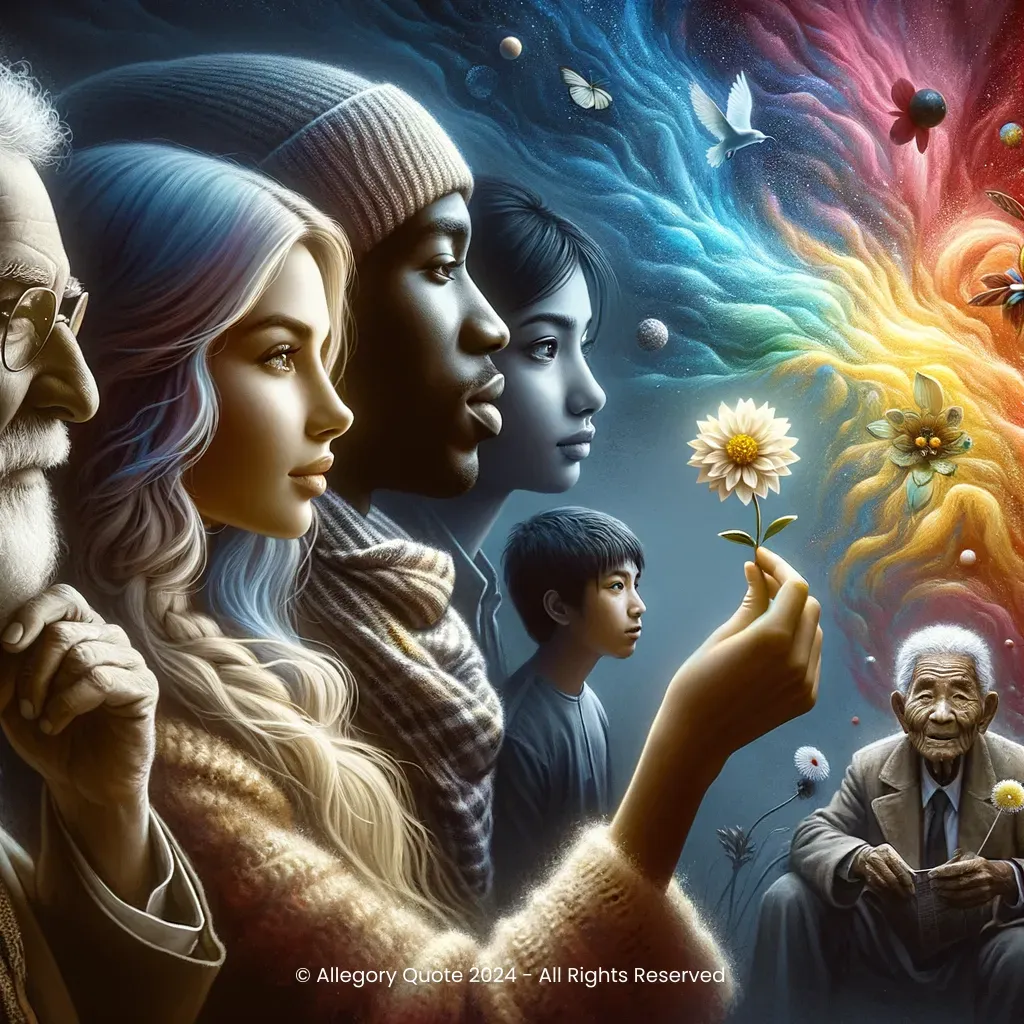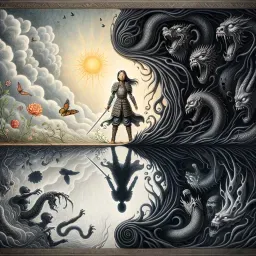Beauty is in the eye of the beholder

0
0
0
0
- Meaning
- The meaning of the phrase "Beauty is in the eye of the beholder" is that beauty does not exist on its own but is created by observers. What one person finds attractive or beautiful might not appeal to someone else. This saying underscores the subjective nature of beauty, suggesting it is a personal and individual experience that can vary greatly among different people.
- Allegory
- This representation includes a diverse group to highlight the varied perceptions of beauty across different individuals. The thought bubbles signify that each person has a unique interpretation, which ties back to the central idea that beauty is subjective. The flower represents a common focal point that can be interpreted in numerous ways, and the abstract background supports the theme of diversity in perception. The blending yet inconsistent colors add to the sense of subjective interpretation and individual experience, emphasizing the proverb's message.
- Applicability
- This saying can be applied to everyday life in numerous ways. It encourages people to appreciate diversity and understand that different individuals may have different tastes and preferences. In personal relationships, it helps to remember that what matters most is how we perceive and value each other. In art, fashion, or judging others, it reminds us to be open-minded and tolerant of differing opinions and tastes.
- Impact
- This phrase has had a profound impact on culture and society by promoting the idea of subjective beauty, which has influenced contemporary views on art, individuality, and cultural diversity. It is often cited in various contexts to emphasize that appreciation of beauty is diverse and individualistic.
- Historical Context
- The phrase likely originated around the period when Margaret Wolfe Hungerford's novel "Molly Bawn" was published in 1878. During this time, the Victorian era was marked by rigid social norms and distinct ideas of beauty and aesthetics. Hungerford's use of the phrase may reflect a subtle rebellion against these confining standards by highlighting the subjective nature of beauty.
- Criticisms
- Critics may argue that the phrase overly simplifies complex sociocultural standards of beauty, failing to acknowledge the influence of media, society, and historical context on what is perceived as beautiful. Others might contend that it disregards shared standards of beauty that can contribute to a sense of community.
- Variations
- Variations of this idea exist in multiple cultures. For example, in Arabic culture, a similar notion is expressed as "The monkey is a gazelle in the eyes of its mother," emphasizing that perception of beauty is influenced by love and personal attachment.
-

We are our choices.
-

Battle not with monsters, lest ye become a monster, and if you gaze into the abyss, the abyss gazes also into you.
-

Appearances can be deceiving.
-

Love is blind, and lovers cannot see the pretty follies that themselves commit.
-

Praemonitus, praemunitus.
-

It is better to be alone than in bad company.
-

I took the one less traveled by, and that has made all the difference.
-

O imagination, that sometimes steals us so, from outside things, that we pay no attention, though someone might be present who hears a bell or a horn, within you!
-

Begin at the beginning.
No Comments